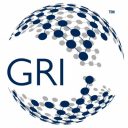
Access to freshwater is essential for all life, and a human right recognized by the United Nations. However, millions of people around the world suffer from water scarcity, poor water quality, and inadequate sanitation. Companies operating in areas with water stress have an urgent responsibility to track their impacts, to make informed decisions that trigger meaningful action.
The cornerstone for effective water management is to know one’s impacts. As a response to the water crisis and the global 2030 Agenda for Sustainable Development, GRI, together with leading experts in water stewardship, has developed a standard to help companies understand how they interact with water, and the impacts of these interactions on the environment and the communities.
The updated standard, GRI 303: Water and Effluents 2018, has an emphasis on water stewardship, aimed at actively managing the impacts within the context of the watersheds companies are operating in. The standard has a basis in the Sustainable Development Goals, particularly Goal 6: ‘Ensure availability and sustainable management of water and sanitation for all’.
It also addresses the investor perspective by introducing disclosures that will make available much-needed information to assess companies’ exposure to water risks.
“The lack of access to freshwater affects more than 40% of the global population. In a world where some companies’ GDPs exceed that of whole countries, the business world is expected to rise to the challenge and do its part in addressing these. The aim of the revised water standard is to help companies report what matters, and where it matters, by using credible, context-based metrics,” says Bastian Buck, Chief of Standards at GRI.
The revised standard helps companies better understand their impacts on freshwater resources, particularly in areas where water stress is already high. It emphasizes collecting information on water use – from withdrawal to consumption and discharge, the associated impacts, and how they are addressed across the value chain. Supply chain impacts, for example, have so far been consistently underreported.
Companies are also expected to disclose how water is managed as a shared resource and how impacts are managed at a local level. The amount of water withdrawn and consumed by an organization and the quality of its discharges can impact the functioning of ecosystems – impacts, that can have wider social and economic consequences for local communities.
Modular approach ensures timely and relevant reporting standards
After releasing the GRI Standards in 2016, the standard on water and effluents is the first, alongside GRI 403: Occupational Health and Safety, to be updated. The modular structure of the GRI Standards allows the Global Sustainability Standards Board (GSSB) to regularly bring individual standards up to date, based on the urgency and demand from the field.
The project working group for the standard on water and effluents included representatives from leading organizations in water stewardship, such as the World Resources Institute, the WWF, and the Pacific Institute. Included were also members from the mining, beverage and textile industries; specialists from responsible investing (UN PRI); as well as representatives from CDP and SASB to ensure alignment and reduce reporting burden for companies.
“As the most used sustainability reporting framework, we see it as our responsibility to create credible and robust standards so that companies can measure and report their impacts on the people and society in a meaningful way. This information feeds into internal processes and informs decision-making – accelerating action towards sustainable development,” Mr. Buck concludes.
GRI is organizing two live webinars on 19 September to present the new standard and answer questions from attendees. Read more and register here.
Previously published on 3BL Media News.

The Global Reporting Initiative (GRI) is an international, multi-stakeholder and independent non-profit organization that promotes economic, environmental and social sustainability. The GRI was established in 1997 in partnership with the United Nations' Environment Programme (UNEP).














